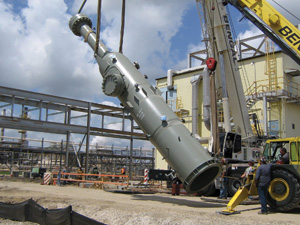October 2009
 View Full Print Edition
View Full Print EditionBusiness Briefs
Columns

Unholy Alliance?
By Robert Vierhout

The Roots of Ethanol Production
By Mike Bryan

Tar Sands Pipeline a Step Backward
By Bob Dinneen

Issues in Nuisance Litigation
By Haley R. Van Loon

Winding Up With Waste to Energy
By Rona Johnson

Congress Must Support the Clean Energy Workforce
By Bob Cleaves

A Feedstock Tip
By Bill Reed

Trade, Algae and Rocket Science
By Ron Kotrba
Featured
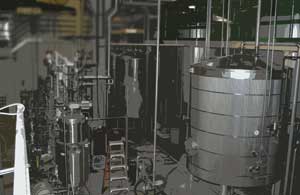
Retrofitting for Alternatives
By Erin Krueger
Colorado-based Gevo Inc. has developed a three-part technology package for retrofitting existing ethanol plants to produce biobased isobutanol. The design allows ethanol producers to leverage existing infrastructure to produce a multitude of alternative fuels and high-value end products.

A Lasting Legacy
By BBI Editorial Staff
Friends and colleagues of Kathy Bryan share stirring memories of her inspirational life and career. From managing a farm-scale ethanol plant in Minnesota to establishing the world's leading ethanol magazine and conference, Bryan's impact on the ethanol industry is deep and lasting.

Is Recycling Yeast an Option?
By Erin Krueger
Sugarcane ethanol producers typically recycle the yeast used in their fermentation process. While yeast recycling can offer a variety of benefits, it can also introduce problems with contamination and shift a plant's fermentation profile.

Central American Getaway
By Kris Bevill
Central American and Caribbean countries continue to serve as rendezvous points for Brazilian ethanol companies seeking to dehydrate their way out of the 54 cent U.S. import tariff. The loophole that allows this has a bad rap among U.S. producers, but is it deserved?

Witnessing a Waste-to-Energy Revival
By Lisa Gibson
In the 1970s, Wheelabrator Technologies helped to launch a prosperous municipal solid waste-to-energy industry in the U.S. The industry wasn't immune to economic and societal hardships, however, and developers struggled to prosper; some didn't survive. Today, the same factors that fueled the industry in its infancy are reenergizing it.
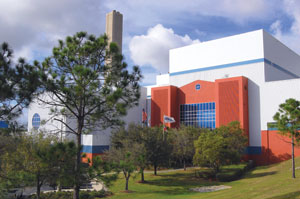
Taking Out the Trash
By Anna Austin
Covanta Energy operates more than 40 waste-to-energy facilities across the globe. These plants collectively convert 19 million tons-or more than 5 percent-of the nation's waste into renewable energy each year.
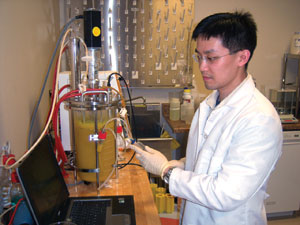
From Scientific Breakthrough to Business
By Lisa Gibson
When Ramon Gonzalez discovered the secret to coaxing industrial E. coli strains to anaerobically ferment glycerin, commonly found in ethanol and biodiesel plant waste streams, he suspected it would be significant to the biofuels, ethanol and biochemicals industries. GlycosBio, the company founded around that discovery, is now on the verge of commercializing its biochemical production capabilities.
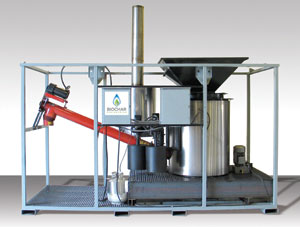
A New Climate Change Mitigation Tool
By Anna Austin
The buzz about biochar is getting louder. Many companies have recently unveiled biochar production systems, and advocates are campaigning to include the soil enhancer in global carbon emission reduction policies.

Rocket Science Meets Biodiesel
By Susanne Retka Schill
In collaboration with the U.S. Navy and Biodiesel Industries, Aerojet-a company that helped put man on the moon-has turned its sights toward biodiesel.

Pacific Rim Panorama
By By Nicholas Zeman
Malaysia and the Philippines are building their exporting power as the market for biodiesel becomes increasingly global. China and Japan are investing heavily in feedstock development for their own biofuels industries. Other regions of Asia are also becoming hot spots, even though some suggest these developments may come at the expense of ancient, ecologically diverse landscapes.

Mixed Signals
By By Nicholas Zeman
Biotechnology is starting to have a dramatic impact on global trade scenarios as international testing, container use and tolerance levels are inconsistent. Negotiations are ongoing to prevent intense stress felt by buyers, sellers and risk managers when international trade is disrupted.
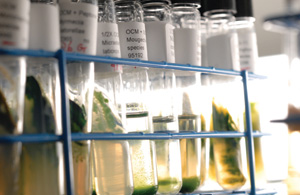
The Promise and the Reality
By Susanne Retka Schill
Some entrepreneurs have hyped algae claims, yet business plays a key role in keeping the effort grounded while researchers advance the science. Everyone agrees, however, algae holds great promise.
Contributions

Manage Technology Convergence While Protecting Innovation
By Joseph Teja Jr. and Michael Pomianek
Intellectual property is a key component to the success of any technology-based company, but it is especially important for energy and/or environmentally-related ventures.
Industrial Biotechs Accelerate Drive to Leverage Glycerin
By David J. Gaskin
Producing additional amounts of ethanol from glycerin in whole stillage may boost plant revenue.

Zero Liquid Discharge Systems Offer Sustainability
By Amelia Jordan
Creating safe, sustainable and environmentally friendly water treatment systems is a priority for ethanol production plants. Zero liquid discharge systems are gaining ground as pragmatic solutions.

Navigating the Intellectual Property Maze
By Paul Craane
Finding the shortest distance between product and protection may take forms other than patents, and may more closely align with a company's goals and the realities of the marketplace.
Canadian corn products refiner, Casco, recently upgraded its 4 million-gallon wastewater anaerobic digester to include a state-of-the-art floating and insulated geomembrane cover, designed and installed by Geomembrane Technologies, effectively streamlining biogas collection, improving odor control and optimizing bioreactor heat retention.








